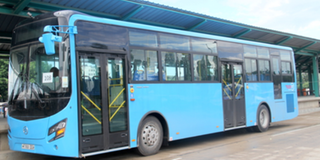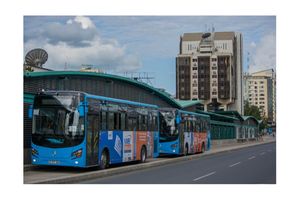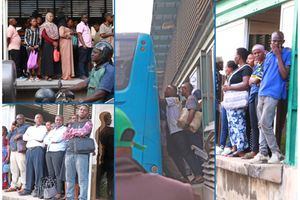
Dar es Salaam. The Dar Rapid Transit Agency (Dart) has awarded a 12-year contract to a local firm, Mofat Company Limited, to operate Phase II of the Bus Rapid Transit (BRT) system, which runs from Gerezani to Mbagala. The firm is expected to introduce 255 gas-powered buses by August 2025.
The development comes as the government moves to hand over operations of both the first and second phases of the BRT system to the private sector, in a bid to enhance efficiency and address longstanding commuter grievances in Dar es Salaam.
Dart Chief Executive Officer Dr Athuman Kihamia confirmed the contract yesterday in a telephone interview from abroad. He noted that while he could not reveal ownership details, the firm is locally owned and has secured the required capital and operational guarantees.
“This marks a major milestone in our effort to deliver reliable and efficient transport services to city residents. The company has committed to deploying the buses within the agreed timeframe,” said Dr Kihamia.
The shift to local operators was echoed on Monday by Treasury Registrar Nehemiah Mchechu, who told editors in Dar es Salaam that Dart is now focusing on attracting more investors, particularly as construction of Phases I and II is complete, with Phase III expected to be finalised by year-end.
Under the new framework, the BRT system will be served by between four and six providers, replacing the current single-operator model led by UDA Rapid Transit (Udart).
Mr Mchechu said Phase I, which covers the Kimara–Kivukoni corridor, and Phase II, from Gerezani to Mbagala, will both be operated by private companies. Udart, the current service provider, will shift to Phase III, which will run from the city centre to Gongo la Mboto. Strategic investors are also expected to be invited to acquire shares in the project.
Dr Kihamia also confirmed that Emirates National Group (ENG), a foreign company, has been awarded a 12-year contract to operate Phase I and is set to introduce 177 diesel-powered buses.
In addition to the 255 buses for Phase II and 177 for Phase I, more units are scheduled to arrive this year—200 in September, another 200 in November, and 100 at a later date—intended to service all routes.
Asked about the value of the contracts, Dr Kihamia said each operational phase, including buses and infrastructure, is worth approximately Sh750 billion.
He acknowledged concerns over delayed project implementation but urged the public to remain optimistic, stressing that the government under President Samia Suluhu Hassan is firmly committed to improving the urban transport system.
“The chaotic and time-consuming commuting experience will soon be a thing of the past,” he said.
Dr Kihamia also urged Tanzanian investors with financial and operational capacity to participate in upcoming tenders for routes such as Mwenge–Tegeta and Gongo la Mboto–City Centre, among others.
“This is no longer a matter of intentions or aspirations. We are now in the implementation phase, backed by signed contracts. The local consortium we have engaged demonstrated credible financial backing, including bank guarantees,” he noted.
According to him, the local investor in Phase II will require over Sh250 billion in capital, while the Phase I operator must bring in buses valued at more than Sh150 billion.
The two phases are expected to generate about 2,100 direct jobs. Dr Kihamia said existing daladala drivers on affected routes will be prioritised for training and certification to operate the new BRT buses.
He also disclosed that he and other officials are currently in China inspecting the manufacturing process for the buses.
While buses in Phase I will run on diesel, those in Phase II will be powered by natural gas.

